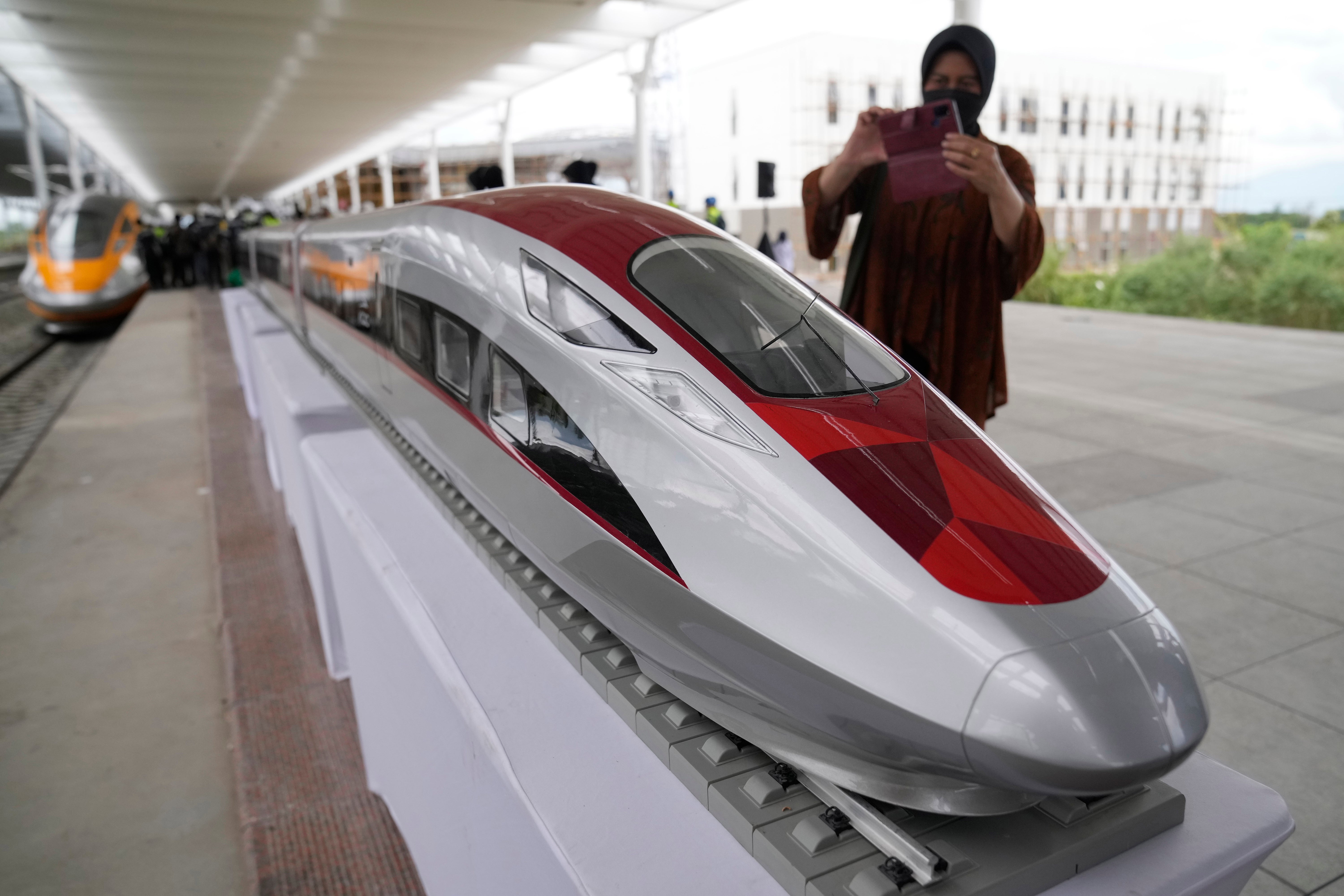Chinese Premier Li Qian takes a test ride on Indonesia's new high-speed railway
Chinese Premier Li Qiang has taken a test ride on Southeast Asia’s first high-speed railway, which connects two Indonesian cities as part of China’s Belt and Road infrastructure initiative

Chinese Premier Li Qiang took a test ride Wednesday on Southeast Asia’s first high-speed railway, which connects two Indonesian cities as part of China’s Belt and Road infrastructure initiative.
Li is visiting Jakarta for two days of talks with leaders of the Association of Southeast Asia Nations and other countries.
The $7.3 billion rail project, funded largely by China, connects Jakarta and Bandung, the heavily populated capital of West Java province. It is to begin commercial operations on Oct. 1 and will cut travel time between the two cities from the current three hours to about 40 minutes.
Li rode the train from Halim station in eastern Jakarta to the next station in West Java’s Karawang city, a 40-kilometer (25-mile) distance that took about 11 minutes. He was accompanied by Indonesian officials including the coordinating minister for maritime and investment, Luhut Binsar Pandjaitan.
“This is clear proof of modern, high-quality cooperation between the two countries,” Pandjaitan said.
Li then returned on the same train to Halim for the East Asia Summit in Jakarta, where he is attending meetings with Asian and Western leaders, including U.S. Vice President Kamala Harris, Japanese Prime Minister Fumio Kishida, Canadian Prime Minister Justin Trudeau and Russian Foreign Minister Sergey Lavrov.
Construction of the rail line began in 2015. It was originally expected to begin operations in 2019, but was delayed by disputes over land acquisition, environmental issues and the COVID-19 pandemic. It was planned to cost 66.7 trillion rupiah ($4.3 billion) but the amount ballooned to 113 trillion rupiah ($7.3 billion).
The 142.3-kilometer (88.4-mile) railway was constructed by PT Kereta Cepat Indonesia-China, known as PT KCIC, a joint venture between an Indonesian consortium of four state-owned companies and China Railway International Co. Ltd. The joint venture said the trains will be the fastest in Southeast Asia with speeds of up to 350 kilometers (217 miles) per hour.
The trains were modified for Indonesia’s tropical climate and are equipped with a safety system that can respond to earthquakes, floods and other emergency conditions.
The rail deal was signed in October 2015 after Indonesia selected China over Japan in competitive bidding. It was financed with a loan from the China Development Bank for 75% of the cost. The remaining 25% came from the consortium’s own funds.
The project is part of a planned 750-kilometer (466-mile) high-speed train line that would cut across four provinces on the main island of Java and end in the country’s second-largest city, Surabaya.
China is Indonesia’s largest trade and investment partner. Southeast Asia’s largest economy wants a larger role in supplying nickel and other raw materials for China’s fast-growing electric car market. The nickel smelting plants in Indonesia are part of China’s Belt and Road transnational development program.
___
Associated Press journalists Jim Gomez and Andi Jatmiko contributed to this report.
Subscribe to Independent Premium to bookmark this article
Want to bookmark your favourite articles and stories to read or reference later? Start your Independent Premium subscription today.
